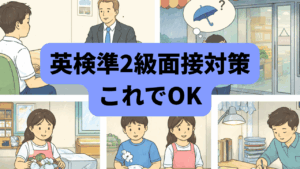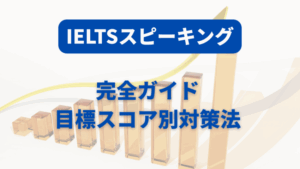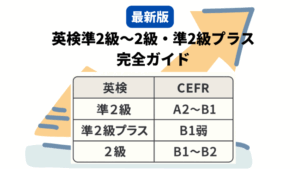
英検準1級のライティングが伸び悩んでいていい勉強法を探していませんか。
この記事では実用英語検定(英検)準1級の英作文の攻略法について解説し、20個の例題をご紹介します。
英検準1級の英作文では、主に英語での意見や提案を述べたり、論評・解説するスキルが求められます。
短時間で効率よくライティングスキルが伸びる有料級の情報を書きました。この記事を読めばライティングの勉強法、コツがわかります。

合格の秘訣
- 語彙力を向上させる
- 文法を正確に理解する
- 構文を活用する
- 自分の意見や提案を明確に表現できるように練習する
- 時事問題や社会問題に関する知識を身につける

特に小・中学生で英検準一級を目指す場合、英検2級に比べてトピックの多くが難しくなじみのないものになるので、日頃からの練習が大事です。
また、簡単なニュース記事などを読んで日頃から自分の意見を持っておくことが重要です。小・中学生でも読みやすい下のNHK easyニュースがおすすめ。
https://www3.nhk.or.jp/news/easy/
英検準一級で使う基本構文
Introduction (序論)
序論では、文章のトピックやテーマを紹介し、読み手の興味を引くようにします。この部分では、文章の目的を書きます。序論は通常、短くてもわかりやすい文章で大丈夫です。
Body Paragraphs (本文)
本文は、2つのパラグラフから構成されます。ここでは、トピックに関する主な考えや意見を展開します。
それぞれのパラグラフは、1つの主要なアイデアに焦点を当て、それをサポートする事実や例を書きます。各段落の始めには、その段落の主題を示すトピックセンテンスを書きましょう。
この構成を繰り返すことで、読みやすい文章になります。
Conclusion (結論)
結論では、文章の最後に主要な考えや意見をまとめます。
この部分では、序論で紹介したトピックやテーマに関連する簡潔なまとめを書きます。
序論、本文、結論を組み合わせることで、読み手にとって意見や考えを理解しやすい文章ができあがります。

英検準一級 英作文例題20

●Write an essay on the given TOPIC.
●Use Two of the Points below to support your answer.
●Structure: Introduction, main body, and conclusion
●Suggested length: 120-150 words
Example 1: Do you think individual actions can effectively tackle environmental issues?
points: climate change, recycling, deforestation, renewable energy
Example 2: Do you believe better public transportation can alleviate traffic congestion in your region?
Points: public transportation, carpooling, urban planning, bicycle lanes
Example 3: Do you think the advantages of online education outweigh the disadvantages?
Points: accessibility, digital divide, self-paced learning, social interaction
Example 4: Do you believe sports have positive social effects?
Points: teamwork, physical health, community bonding, sportsmanship
Example 5: Do you think flexible working hours can lead to diverse working styles?
Points: flexible hours, remote work, work-life balance, job-sharing
Example 6: Do you think international marriages have more pros or cons?
Points: cultural exchange, language barriers, legal issues, family dynamics
Example 7: Do you believe mandatory voting would encourage political participation among young people?
Points: civic education, youth engagement, social media, voting system
Example 8: Do you think technology has a positive or negative impact on the workforce?
Points: automation, reskilling, remote work, economy
Example 9: Do you believe maintaining a healthy lifestyle requires a strict daily routine?
Points: physical exercise, balanced diet, stress management, sleep
Example 10: Do you think international cooperation is essential in combating climate change?
Points: emission reduction, technology transfer, policy coordination, climate finance
Example 11: Do you believe improving sustainability in the tourism industry is achievable?
Points: eco-tourism, waste management, local community involvement, cultural preservation
Example 12: Do you think the impact of social media on society is primarily positive or negative?
Points: communication, misinformation, privacy concerns, online harassment
Example 13: Do you believe that an aging society will face more significant challenges in elderly care?
Points: long-term care, healthcare system, aging population, caregiver support
Example 14: Do you think businesses should take more responsibility in reducing food waste?
Points: food waste reduction, composting, consumer awareness, corporate responsibility
Example 15: Do you believe that mental health support should be more accessible for the working-age population?
Points: mental health resources, workplace policies, stress reduction, employee assistance programs
Example 16: Do you think achieving gender equality within the household is possible?
Points: gender roles, work-life balance, shared responsibilities, parental leave
Example 17: Do you believe that urban planning can effectively address overcrowding in urban areas?
Points: urban density, green spaces, housing policies, infrastructure development
Example 18: Do you think young people play a crucial role in revitalizing rural areas?
Points: entrepreneurship, education, community development, rural revitalization
Example 19: Do you believe current energy policies are sufficient to achieve a decarbonized society?
Points: carbon pricing, renewable energy, energy efficiency, climate policies
Example 20: Do you think that building disaster-resilient communities should be a top priority for governments?
Points: disaster preparedness, resilient infrastructure, community planning, early warning systems

例題と回答例をご紹介
例題1
Example 1: Do you think individual actions can effectively tackle environmental issues?
Introduction: I believe that individual actions can effectively tackle environmental issues such as climate change and deforestation. Small, conscious choices by individuals can contribute to the global effort against these problems.
Body Paragraph 1: By adopting eco-friendly habits, individuals can directly impact climate change. For instance, using energy-efficient appliances, consuming less meat, and reducing single-use plastics can lower one’s carbon footprint. Furthermore, supporting green energy initiatives like solar and wind power helps transition to a more sustainable future.
Body Paragraph 2: Individuals can also combat deforestation by making informed consumer choices. Choosing products with sustainable certifications, such as FSC-approved paper and wood items, can help protect forests. Additionally, supporting reforestation efforts by planting trees and raising awareness contributes to forest preservation.
Conclusion: In conclusion, individual actions, though small, can effectively address environmental issues like climate change and deforestation. By making responsible choices and advocating for sustainable practices, we can collectively create a greener and healthier planet.
例題1:個人が行動することで環境問題に効果的に取り組むことができると思いますか?
序論:私は個人が行動することで、気候変動や森林破壊などの環境問題に効果的に取り組むことができると考えています。個々人が意識的な選択をすることで、これらの問題に対する世界的な取り組みに貢献できます。
本文パラグラフ1:環境に優しい習慣を身につけることで、個人は気候変動に直接影響を与えることができます。例えば、省エネ家電を使用したり、肉の消費を減らしたり、使い捨てプラスチックを減らすことで、自分の炭素足跡を減らすことができます。さらに、太陽光発電や風力発電などのグリーンエネルギーの取り組みを支援することで、より持続可能な未来への移行を促すことができます。
本文パラグラフ2:個人は、消費者としての選択を通じて森林破壊と闘うこともできます。FSC認定の紙製品や木製品など、持続可能性が認められた製品を選ぶことで、森林を保護することができます。さらに、植樹や啓発活動を通じて森林再生の取り組みを支援することで、森林の保全に貢献します。
結論:結論として、個人の行動は小さくても、気候変動や森林破壊などの環境問題に効果的に取り組むことができます。責任ある選択を行い、持続可能な慣行を推進することで、私たちは共同でより緑豊かで健康な地球を創造することができます。

例題2
Example 2: Do you believe better public transportation can alleviate traffic congestion in your region?
Introduction: While public transportation and bicycle lanes may seem like effective solutions to alleviate traffic congestion, I believe they are insufficient on their own to address the issue in my region.
Body Paragraph 1: In my region, the existing public transportation system is not reliable enough to encourage people to use it as an alternative to driving. Buses and trains often experience delays, making it difficult for commuters to rely on them for timely travel. Additionally, the coverage of the public transportation network is limited, leaving many areas inaccessible without a personal vehicle.
Body Paragraph 2: Bicycle lanes, while beneficial for promoting healthier and greener transportation options, are not a practical solution for all commuters. Many people live too far away from their workplaces, making it unrealistic to bike daily. Moreover, adverse weather conditions and safety concerns can deter potential cyclists from using bike lanes regularly.
Conclusion: In conclusion, while public transportation and bicycle lanes have their merits, they alone cannot sufficiently alleviate traffic congestion in my region. A comprehensive approach, including infrastructure improvements and flexible work arrangements, is required to effectively address the issue.
例題2:あなたの地域で公共交通機関の改善が交通渋滞の緩和につながると思いますか?
序論:公共交通機関や自転車専用レーンは、交通渋滞の緩和に効果的な解決策のように思えますが、私の地域ではそれだけでは問題に対処できないと考えています。
本文パラグラフ1:私の地域では、既存の公共交通システムが運転を代替手段として利用するほど信頼できるものではありません。バスや電車は遅れが多く、通勤者が時間通りに移動するために頼ることが難しいです。また、公共交通網の範囲は限られており、個人の車両がなければアクセスできない地域が多くあります。
本文パラグラフ2:自転車専用レーンは、より健康的で環境に優しい交通手段を推進するうえで有益ですが、すべての通勤者にとって実用的な解決策ではありません。多くの人々は職場から遠く離れた場所に住んでおり、毎日自転車で通勤することは現実的ではありません。さらに、悪天候や安全性への懸念が、自転車専用レーンを定期的に利用する意欲を削ぐことがあります。
結論:結論として、公共交通機関や自転車専用レーンはそれぞれに長所がありますが、私の地域の交通渋滞を十分に緩和するためには、それだけでは不十分です。インフラの改善や柔軟な労働環境など、包括的なアプローチが問題に効果的に対処するために必要です。

まとめ

英作文は難しいですが、日頃からたくさんの例題を自分で解いて、プロの先生から添削してもらうことで実力を伸ばせます。オンライン英会話で短期集中してライティング能力を伸ばすことは十分可能です。
私の夫はイギリス人で10年間英語講師をしています。昔はタイの小学校で教えていて、今は上級レベルの日本人に英語を教えています。英作文の添削が丁寧で定評があります。
もしネイティブスピーカーの先生の英作文レッスン、もしくはオフライン添削サービスにご興味がある方は、問い合わせよりご連絡ください。

オンライン英会話スクールで英検に特化したプロの先生がいるところも以下の記事で詳しくご紹介しています。









